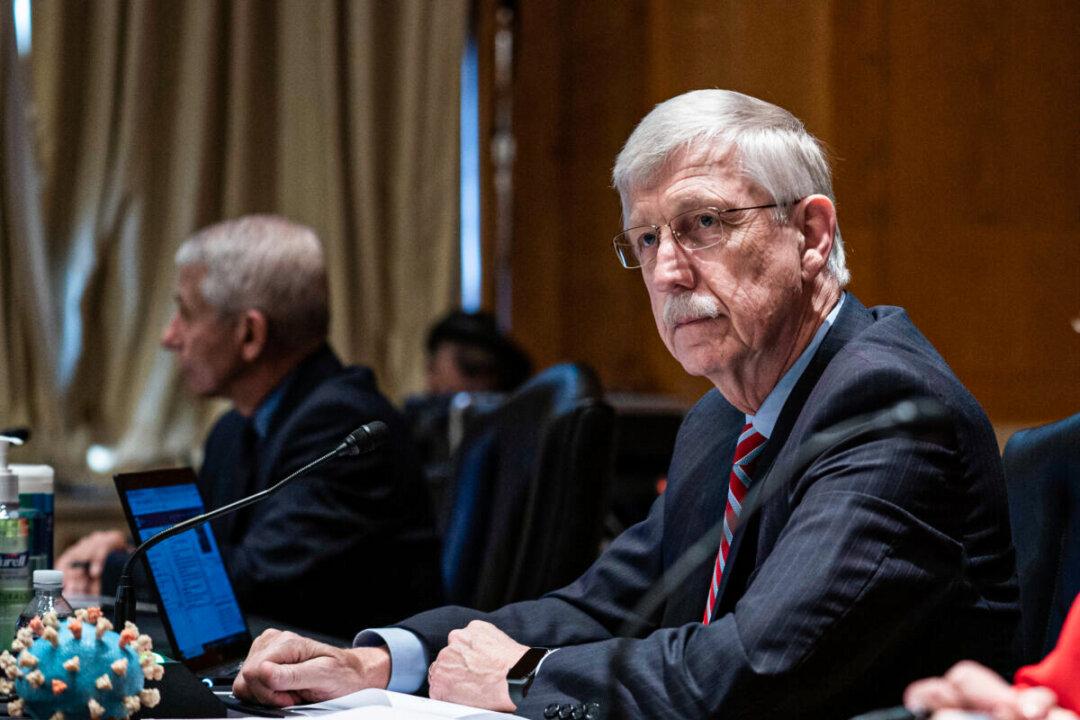Amid uncertainties around the Omicron variant of the CCP (Chinese Communist Party) virus, National Institutes of Health Director Francis Collins said it will take weeks before scientists understand how effective the vaccines are at protecting against it.
During an interview on “Fox News Sunday,” Collins said the fact that the newly classified Omicron has more than 30 mutations on its spike proteins adds to the complexity in understanding whether the antibodies created by vaccines remain effective against it.





